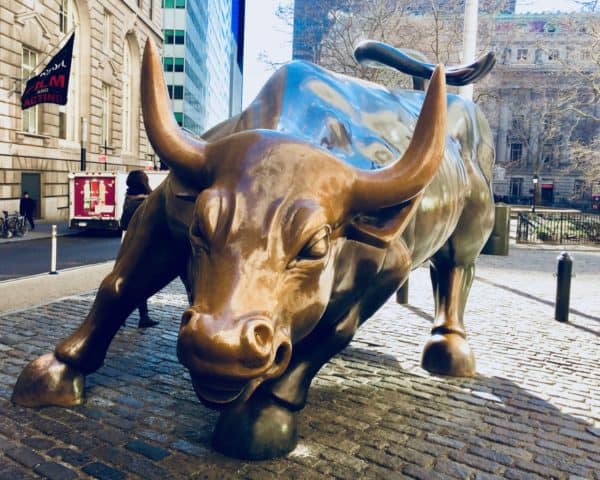Just 14 of the last 97 recently launched IPOs saw a share price improvement between their first-day trading price and the end of August 2022. The remaining 83 suffered a decrease, according to data published by IPOScoop. The figures could indicate the real growth potential for investors remains while companies are private, while investors who wait for them to go public arrive too late to the party to realise value.
Uber (NYSE:UBER)is a key example. Valued at $5.4 million when it was just one year old, the firm went public in 2019 valued at $80 billion. Shares started at $45 but lost more than 7% on the first day and, by close of business on the 31st of August 2022, traded at $28.74 per share. All of this shines the spotlight on investing much earlier when exciting private companies are still in their key growth stage.
This is also borne out by the growth of equity crowdfunding, which now allows a private company to raise up to $5 million on a Regulation CF or as much as $75 million per year on a Regulation A+.
Following the JOBS Act legislation, designed to allow small and large investors to have a stake in early-stage private companies through crowdfunding, this trend allows investors – both retail and accredited – to have a stake much earlier in a private company’s life cycle. Previously it was predominantly the domain of deep-pocketed venture capitalists.
In addition to opportunities created by equity crowdfunding, some Alternative Trading System (ATS) platforms have gained approval via financial regulators for secondary trading of private securities.
They create the potential for investors to acquire, trade, and monetize a private security assuming there is a willing buyer and seller to execute in the same way as a public stock exchange.
This has the potential to open the door to further growth in a private securities market that, according to Forbes, is already worth an estimated $7 trillion and is forecast to be $30 trillion by 2030.
Nasdaq also reported recently that more firms are resisting going public in order to build value and investment while keeping control of the company, rather than becoming too restricted as a public company.
The report said the median age of a company going public in 1980 was six years – in 2021 it was 11.
Nasdaq also revealed that from 1980 to 2000, there were more than 6,500 IPOs – from 2001 to 2022, there have been fewer than 3,000.
It’s also been said by former SEC Chairman Jay Clayton that due to regulation, America’s public markets are too costly for companies compared to the private market:
“The public capital markets are so extensively regulated that companies with less than $1 billion in value find the costs of being publicly traded prohibitive. Deep pools of private capital have emerged to fund innovation and growth in small and medium-size companies, though regulations mostly limit these pools to institutional and high-net-worth investors.”
Award-winning broker-dealer Rialto Markets, based in New York, has seen increased demand for its own secondary trading ATS as well as demand for its capital raising infrastructure and technology, using Regulation CF, Regulation A+ or a combination with an institutional Regulation D investment offering. Its CEO and co-founder, Shari Noonan explained:
“Investors waiting for fast-growing companies to go public are not only waiting longer today, but the opportunities to make a healthy return are proving to be more difficult, potentially because of how late in their life-cycle they come to the public markets. Investing in an IPO today can often be the case of getting in late when most value has potentially been made already. That, in turn, is making many look at the new opportunities such as equity crowdfunding and secondary trading private securities as a route to longer term growth potential while they are still private.”
In a report by the National Association of Corporate Directors, it was suggested public companies are also increasingly looking to return to private ownership. It quoted Dealogic data which, as of mid-May this year, revealed 26 public companies have gone private, totalling more than $121 billion in value.
Figures for 2021 revealed 47 companies did the same – the highest in more than a decade.
After creating more than $57 billion in value for shareholders in previous ventures, one private company founder has just begun a $40 million Regulation A+ investment offering for his latest company, Medical 21, intending to transform how we deal with heart disease. He is legendary entrepreneur Manny Villafan͂a, who has already improved millions of patients’ lives worldwide with his range of pacemakers and heart bypass innovations, previously selling technologies to Abbott, Boston Scientific, Medtronic, and St Jude Medical.
Villafaña now plans to utilise the power of equity crowdfunding for Medical21, whose biocompatible artificial artery technology eliminates pain and suffering while reducing surgical failure rates dramatically, potentially saving millions of lives a year for those who cannot be easily treated for a heart bypass via current methods.
He said:
“Having created so much shareholder return for my previous heart related innovations over the years, it is invigorating to be able to raise capital through building a wider investment community of advocates, who can help spread the word and potentially contribute to greatly reducing the impact of the world’s biggest killer heart disease through investing in Medical21’s pioneering heart bypass surgery technology. We hope to deliver our new technology to a million more patients a year with the support and investment from equity crowdfunding.”
Steve Loader is an international journalist and editor specializing in business & technology, motoring & transport, environment, and health steve@steveloader.co.uk



